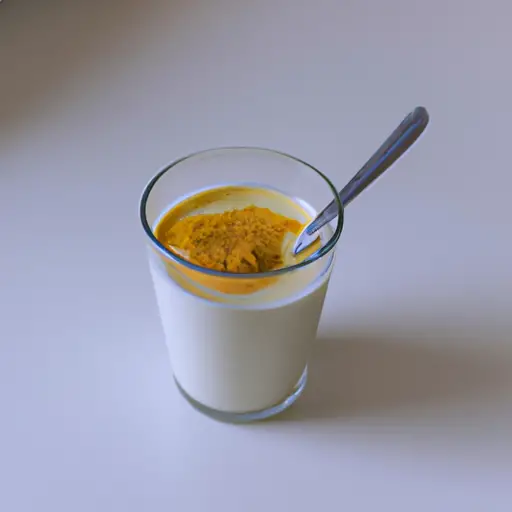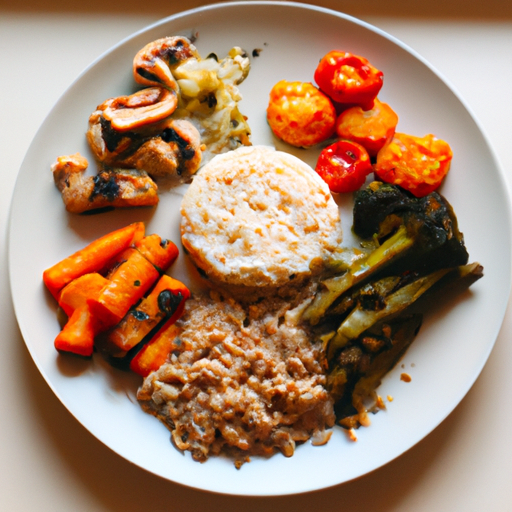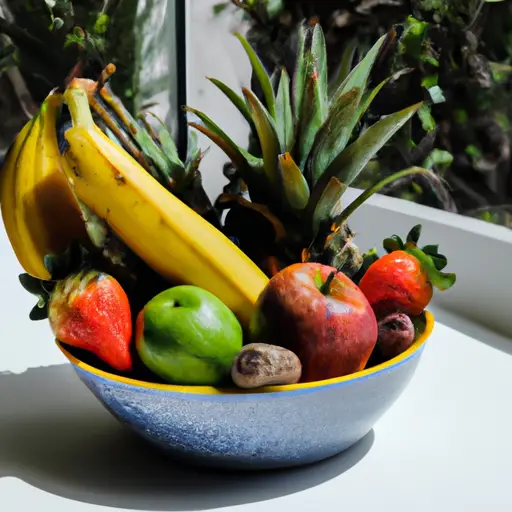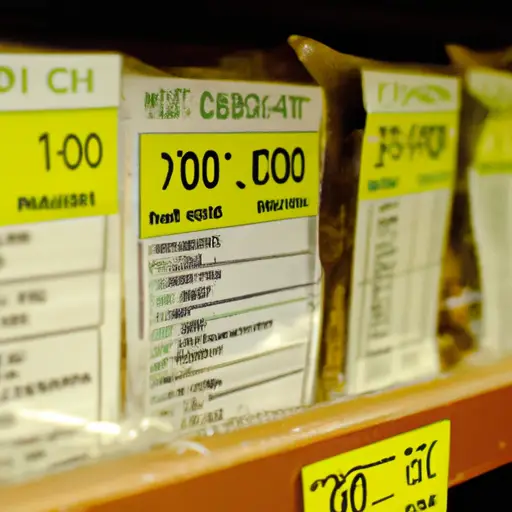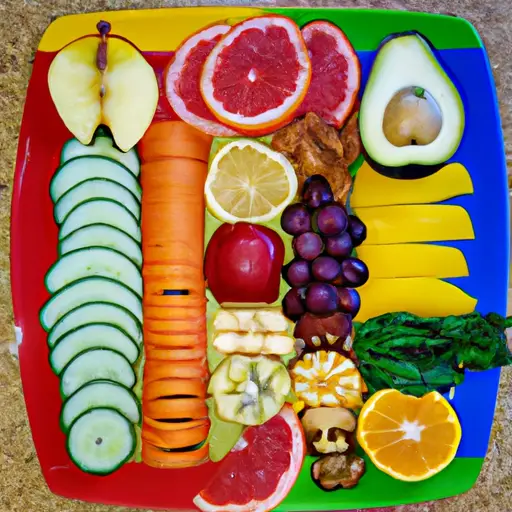The Connection Between Dairy and Inflammation
Introducing Inflammation: What’s The Deal with Dairy?
Hey there, it’s great to connect with you on this blog post about inflammation and dairy. Let’s first talk about what inflammation is – it’s a process in the body’s immune response to infection or injury, resulting in redness, swelling, pain, and heat. Basically, it’s your body’s way of fighting back against harmful stimuli, like viruses or bacteria. However, inflammation can also occur chronically, leading to various health problems, such as heart disease, diabetes, and arthritis.
Now, you may be wondering about the link between dairy and inflammation. Well, recent studies have shown that some dairy products may contribute to chronic inflammation in the body, while others may have anti-inflammatory properties. So, it’s important to understand the role of dairy in inflammation and how you can make informed food choices to mitigate the risk of inflammation-related diseases.
The Role of Dairy in Inflammation
So, what’s the deal with dairy and inflammation? Well, it turns out that dairy consumption can have a significant impact on inflammatory markers in the body.
First off, it’s important to note that there are many different types of dairy products out there – milk, cheese, yogurt, and butter, to name a few. While some studies have found that certain dairy products may have anti-inflammatory effects, others have linked dairy consumption with increased inflammation in the body.
When we consume dairy products, they can trigger an immune response in the body, which can lead to the release of inflammatory cytokines. These cytokines can cause inflammation in tissues throughout the body, including the joints, skin, and digestive system.
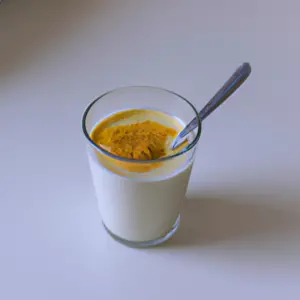
Additionally, dairy products are known to contain a protein called casein, which some people may have difficulty digesting. In these cases, undigested casein can leak into the bloodstream and trigger an immune response, further increasing inflammation in the body.
Overall, while the link between dairy and inflammation is still being studied, it’s clear that dairy consumption can have a significant impact on inflammatory markers in the body. If you’re looking to reduce inflammation through your diet, it may be worth considering cutting back on dairy products or choosing alternatives that are lower in casein and other potentially inflammatory compounds.
How to Reduce Inflammation Through Diet
Hey there, if you’re struggling with inflammation, you’re in the right place. I know how frustrating inflammation can be, but the good news is that your diet can play a huge role in reducing it. Here are some tips on how to reduce inflammation through diet:
Recommended Foods to Eat
First things first, you need to stock up on anti-inflammatory foods. These include veggies like kale, spinach, broccoli, and sweet potatoes. Fruits like berries, cherries, and oranges are also great. As for protein, try to get your fix from fatty fish like salmon and tuna, which are high in omega-3s. And don’t forget about healthy fats like avocados and nuts.
Another important aspect of an anti-inflammatory diet is fiber. Fiber can help to reduce inflammation in the body and promote healthy gut bacteria. So, make sure you’re eating plenty of whole grains, legumes, and fruits and veggies.
Benefits of Eating an Anti-Inflammatory Diet
The benefits of eating an anti-inflammatory diet are numerous. Firstly, it can help to reduce your risk of chronic diseases like heart disease, diabetes, and cancer. It can also help to improve your gut health, boost your immune system, and improve your overall mood and energy levels.
But perhaps the biggest benefit of reducing inflammation through diet is that it can help to alleviate many of the symptoms associated with inflammation. This includes things like joint pain, headaches, and fatigue. So, if you’re struggling with any of these symptoms, it’s definitely worth giving an anti-inflammatory a try.
That’s it for now. Remember, reducing inflammation through diet is possible, and it starts with making simple changes to your everyday eating habits. So, grab some berries and get started!
Wrapping it Up: My Final Thoughts on Dairy and Inflammation
Well, there you have it folks – the verdict on whether dairy is linked to inflammation is not quite clear. While some studies suggest that certain types of dairy products may contribute to inflammation, other studies show conflicting results. However, one thing is for sure – maintaining a healthy, anti-inflammatory diet is crucial for overall health and wellbeing.
So, what can you do if you’re concerned about inflammation? First and foremost, consider limiting your intake of processed and high-fat dairy products. Instead, opt for low-fat or non-fat dairy options like skim milk or Greek yogurt. Additionally, eating a diet rich in fruits, vegetables, lean protein, and healthy fats can help to reduce inflammation and promote optimal health.
Finally, remember that everyone’s body is different. What works for one person may not work for another. If you’re experiencing inflammation, it’s always best to consult a healthcare professional for personalized advice.
In conclusion, while the link between dairy and inflammation is still a bit hazy, focusing on an overall healthy diet and lifestyle is key. Remember to listen to your body, make informed decisions, and prioritize your health above all else. With a little effort, you can take control of inflammation and live your happiest, healthiest life yet!
FAQ: Dairy & Inflammation
Does gluten and dairy cause inflammation?
Well, let me tell ya, there’s been some talk about the link between dairy and inflammation. Some folks say that dairy products can cause inflammation in the body, but it’s not quite that simple. When it comes to gluten and dairy causing inflammation, it really depends on the person. Some people have a sensitivity or allergy to these foods, which can lead to inflammation. However, not everyone will have this reaction. Experts say that if you have a known sensitivity or allergy to dairy or gluten, it’s best to avoid these foods to prevent inflammation and other negative reactions. On the other hand, if you don’t have any sensitivities or allergies, there’s no need to cut these foods out of your diet. It’s also worth noting that some dairy products, like yogurt and kefir, actually have anti-inflammatory properties. So, it’s not all bad news for those who enjoy dairy. Overall, it’s important to listen to your body and pay attention to any symptoms or reactions you may have when consuming these foods. If you suspect a sensitivity or allergy, it’s best to speak with a healthcare professional. But for those who can tolerate dairy and gluten, there’s no need to stress too much about their potential inflammatory effects. So, enjoy your cheese and bread in moderation and see how your body responds!
Which milk is anti-inflammatory?
Well, let me tell you, friend: not all milk is created equal when it comes to inflammation. In fact, some milk can actually exacerbate inflammation, while others can help reduce it. That’s why it’s important to know which milk is anti-inflammatory.First off, it’s good to know that not all dairy products are created equal either. For example, cheese and ice cream may not be your best bet if you’re looking to avoid inflammation. But there are some dairy products that have anti-inflammatory properties, such as whole-fat milk from grass-fed cows. This milk is high in omega-3 fatty acids, which are known to have anti-inflammatory effects.In addition to whole-fat milk, you might also want to consider goat’s milk. It’s been shown to be easier to digest than cow’s milk, and it contains more anti-inflammatory fatty acids than cow’s milk. However, if you’re lactose intolerant, you may want to avoid dairy altogether and opt for non-dairy milk alternatives like almond, coconut, or soy milk.So, to sum it up, if you’re looking for an anti-inflammatory milk, go for whole-fat milk from grass-fed cows or goat’s milk. It’s important to note that while these milks may have some anti-inflammatory benefits, they should be consumed in moderation as part of a balanced diet. As with any health concern, it’s always a good idea to consult with a healthcare professional before making any major dietary changes.
What is the most anti-inflammatory food?
Well, let me tell ya, there are a ton of foods that may help reduce inflammation in the body, but I gotta say, one of the most anti-inflammatory foods out there is probably fatty fish like salmon. Now, don’t get me wrong, there are plenty of other foods like leafy greens, nuts, and berries that are also anti-inflammatory, but the reason fatty fish is so powerful is because it’s loaded with omega-3 fatty acids. These healthy fats have been shown to decrease inflammation and even lower the risk of chronic diseases like heart disease and arthritis. So, if you’re looking to fight inflammation through diet, incorporating more fatty fish into your meals could be a great place to start. Now, I should also note that not all fish are created equal when it comes to inflammation-fighting properties. It’s important to opt for fish that are high in omega-3s like salmon, sardines, and mackerel, while avoiding fish that are high in mercury and other toxins like swordfish and shark. And if you’re not a seafood fan, don’t worry! There are plenty of other ways to incorporate anti-inflammatory foods into your diet, like adding turmeric to your meals or snacking on some dark chocolate. At the end of the day, the key is to focus on whole, nutrient-dense foods that have been shown to reduce inflammation and improve overall health.
